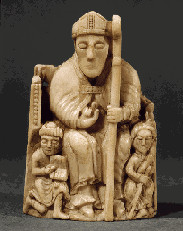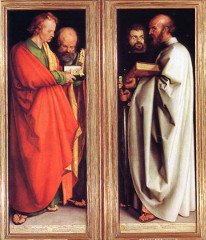I received the following question in my email and thought it worth sharing my response:
I am having a hard time wrapping my mind around the defense for episcopal church government. I can see the case for a plurality of elders in the New Testament, but this would seemingly lend itself to either a Presbyterian or Congregational polity. What is the best defense for the role of bishops? Can we defend it from the New Testament? And how do Anglicans account for the plurality of elders, such as revealed in Philippians 1:1?
The following is my own argument, but is a summary of arguments that can be found in numerous sources. A bibliography occurs at the end.
 Almost immediately after the Reformation, Anglicans acknowledged that the distinction between bishops and presbyters is not clearly articulated in the New Testament. Episcopacy was still defended, and a number of similar arguments have been used and repeated, beginning at least from the time of Richard Hooker.
Almost immediately after the Reformation, Anglicans acknowledged that the distinction between bishops and presbyters is not clearly articulated in the New Testament. Episcopacy was still defended, and a number of similar arguments have been used and repeated, beginning at least from the time of Richard Hooker.
The first issue has to do with the difference between exegesis and hermeneutics, that is, the difference between what Scripture meant in its original historical setting and how the church applies Scripture to its life today. The fundamental difference between Richard Hooker and his Puritan opponents had to do with the issue of contemporary application. Both Hooker and the Puritans agreed that Scripture was the final authority for Christian doctrine and practices, but they differed on what that meant for the contemporary application of Scripture. The Puritans subscribed to the “regulative” principle of biblical interpretation: whatever is not specifically commanded in Scripture is forbidden. Accordingly, they were opposed to such practices as the exchange of wedding rings, written liturgies (such as the Book of Common Prayer), hymns (apart from the Psalms), vestments, and bishops, insofar as the Puritans noted correctly that the New Testament makes no inherent distinction between presbyteroi (presbyters) and episkopoi (bishops). To the contrary, Hooker embraced a permissive understanding of biblical hermeneutics: whatever Scripture does not explicitly forbid is permitted. Moreover, Hooker distinguished between matters of doctrine and morals (which are unchangeable), and matters of civil and ritual law (which are changeable by the church). The famous distinction between moral, civil and ritual law is not original to Hooker; it can be found in Thomas Aquinas, in the Lutheran Confessions, and in John Calvin. Hooker also insisted, however, that the distinction meant that churches were free to adopt ecclesiastical practices that were not explicitly commanded in the New Testament as long as they were not forbidden. This included written prayers (liturgical worship, including the Prayer Book), practices such as exchanging wedding rings, and retaining the historic catholic practice of the three-fold order of bishops, priests, and deacons – even if that order is not explicitly commanded or found in the New Testament. (more…)
 Apostolic succession has had three different meanings in the history of the church.1
Apostolic succession has had three different meanings in the history of the church.1 



